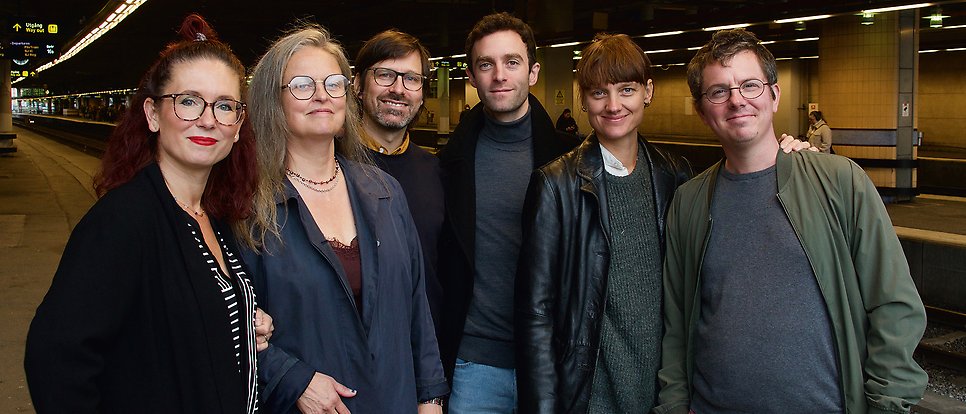The state needs to take more responsibility for the housing, researchers suggest

Authors of the book "Crisis in the housing system". From the left: Dominika V. Polanska, Åse Richard, Ståle Holgersen, Timothy Blackwell, Maria Wallstam and Hannes Rolf.
The market cannot solve the current housing crisis by itself. Therefore, the state needs to take greater responsibility and work for a solidaristic, equal and climate-adapted housing system. These are proposals presented in the new book Crisis in the housing system – for a solidaristic housing policy. The book provides a thorough overview of more than one hundred years of Swedish housing history and is the result of the research project "Together for sustainable alternatives in a time of crisis", which has been conducted at IBF for several years with support from the research council FORMAS.

– The problem with today's housing system and the reason why we hear so much talk of crisis is that the state has withdrawn. Today, it is the market that, more or less, controls the supply of housing. This means that today we see housing inequality that above all affects people who are economically vulnerable, people who do not have the opportunity to choose in a free market, says Dominika V. Polanska, former researcher in Sociology at IBF, but now Associate Professor in Sociology working at the Department of Social Work at Södertörn University.
The book analyzes Swedish housing history with a focus on construction, financing and policy. Where do we stand today? What is the current crisis about? What proposals can get us out of it? Who is building? Where and what is being built? And how is the construction and consumption being financed?
– By solidaristic housing policy, we mean an equal and inclusive housing system that is based on the needs of low-income earners. We have seen how the market orientation rather fosters competition and individualism. By a solidaristic housing system, we mean that everyone should have the opportunity to create a decent home at a reasonable cost, and where the state takes greater responsibility, says Dominika V. Polanska.
What is clear, according to the research group, is that the market orientation that has characterized the Swedish housing system for the past three decades has failed. Housing has indeed been built, but not always the housing that is needed and for those who really need it. In addition, a series of political decisions, from both right-wing and left-wing governments, has led to, for example, public housing losing its role as a rent regulator and the development of associated infrastructure lagging behind.
– We advocate, for example, a state construction company that can set the standard for what it costs to build and thus maintain transparency around the cost of construction and housing. We also see that society must redirect the resources that go to owner-occupied housing to other forms of housing, says Dominika V. Polanska.
Exactly when the development that led to today's housing situation took place is difficult to say. The research that forms the basis of the book points to a series of decisions, tendencies and political shifts that have been contributing factors.
– The deregulation of condominiums in 1968 is such a decision as it opened the way for cooperative conversions that came later. But above all, we see how the change gained momentum during the 1980s with the neoliberal currents that grew and then paved the way for major system changes subsequently. The culmination probably came in 2011 when public housing did not set the standard for rents any lower and would henceforth be run on business-like principles. Previously, the cost principle applied, says Maria Wallstam.
In other parts of Europe, there is a so-called dualistic housing system, that is, the market stands for one type of tenure and the state another.
– In France, Great Britain and many other countries we see social housing, housing for those who cannot afford the housing available on the open market. It is not something we want to see in Sweden, it is a stigmatizing system that leads to increased housing inequality. Everyone should be able to live in a rental property and be proud of it, says Dominika V. Polanska.
Text: Södertörns högskola
